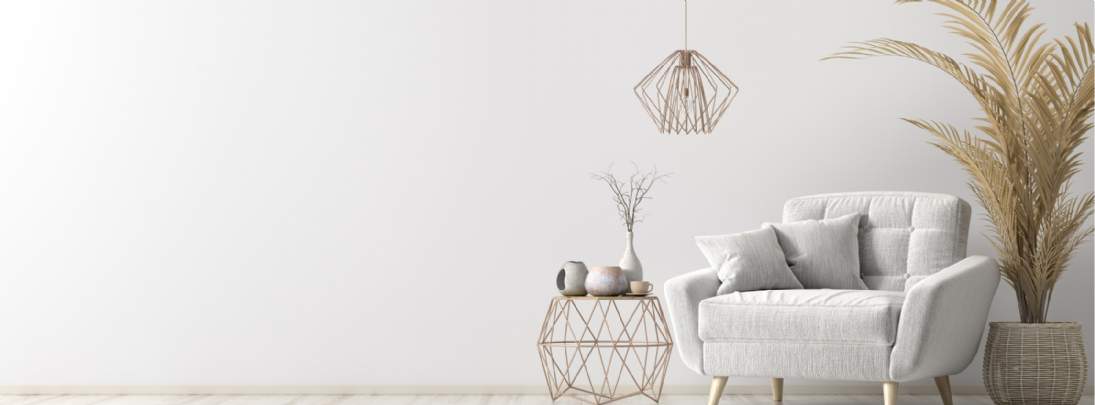Welcome to my ‘Quick Q&A’ series in which I will address questions that I am often asked by my clients and highlight issues that affect their international residential investment decisions. Each week I will be sitting down and asking 5 questions, working alongside a group of industry experts to answer your most frequently asked questions.
This week I sat with Amy Mill founder of Custom No.9
1. How is the ‘new normal’ impacting people and the way they are spending time at home?
Whilst we’re in the midst of some very challenging times, we’re seeing a lot of people really thinking in depth about improving their homes due to lockdown. Rather than making rash purchases, we are receiving a lot of enquiries from people who’d like to look at investing in that piece they will keep forever as they’ve perhaps for the first time ever really looked at that one spot in their home.
In addition, there is of course the huge change to ‘working from home’. I think a lot of people realise that the ‘new normal’ will have long lasting impacts in many ways, with flexible working being one of them. Many employers are talking about implementing longer term flexible working policies as they have seen certain increases in productivity, and general positive feedback from their teams. We’re seeing a lot bespoke home office desk orders from customers who recognise the shift and realise the importance of investing in a long term piece.
In situations where one is likely to be working from home more often in the future, its beneficial to think now about how to create a working environment that allows them to not only be productive, but to feel comfortable and at ease. The same way in which an employer would think through a new office fit out. In addition to this its important to think long term, and not buying something on the basis that it’s cheap and will do for right now. In a world where sustainability is growing in importance day by day, it would be detrimental for every ‘WFH’ employee to buy a cheap desk that will do for a few weeks only to be thrown away.
Perhaps we may start to see an employer investing in her or his employees work from home environments rather than the company’s own office space. Whilst this has sustainability benefits like reduction in travel and ensuring the workspaces are good quality, it could have a profound impact on productivity if the space is created in a way that’s right for that particular employee.
2. The rental market can be challenging with strict deposit systems meaning many home renters are faced with homes that they aren’t able to make a huge amount of change to. How can bespoke furniture help with this?
Choosing bespoke furniture has many benefits. First and foremost, you are able to play a key role in the design of the piece, meaning you end up with something that’s a direct reflection of your personality and has a story behind it. It becomes a key differentiator in an apartment that may have very similar finishing’s and attributes as others.
Secondly, going bespoke means you can decide on the exact sizes of every element, giving you a piece that fits perfectly within your space. In a rental home, where you’re not able to make changes to the structural floorplan, going bespoke means you can really focus on size and proportions so that it visually and functionally fits the given space.
The ability to decide on design, colours, features and specifications leaves you with a piece of furniture with a lovely story behind it. Again, in a home where you’re not able to add your stamp on the structure, this provides an avenue for making it unique to you through furniture.
Going bespoke and being part of the production process from beginning to end usually means you get to know your ‘maker’. You can ask as many questions to the maker directly to understand who and how your furniture is made and where the materials are from.
3. There’s been a lot of buzz around slow/sustainable fashion, but can we follow similar principals when it comes to furniture?
When we’re choosing statement furniture for the home, I really believe we should be thinking long term, just like we’re beginning to in the fashion industry. Asking ourselves ‘is this piece going to make me feel warm and fuzzy for years to come?’. If it’s a no, chances are it will end up being sold on or thrown in a few years. Our grandparent’s generation would hand pieces of furniture down that had been in the family for years. As we are living through a more globalised world with people living in many countries over their life span, we all too often buy pieces for ‘right now’, rather than ‘for life’.
Statement pieces shouldn’t be about what’s trending. Accessories should be for that. Furniture should be long term. It’s about investing in something that truly reflects you and your personality, that you’ll never want to part with. Just like a home.
In fashion, people are becoming more concerned about where their clothes are from; who is actually making them and where do the materials come from. Furniture, and anything else we’re buying to that matter, should be no different. We should be asking where it’s made, where the materials are sourced from. Is the process ethical? Are the materials sustainable?
Whilst we are incredibly selective about the materials used for each of our pieces, our team of designers and engineers are the real heroes of the process. They are true skilled craftsmen, and working together as a team, each piece is designed and produced right here in the UAE.
5. What advice do you have for someone wanting to create a bespoke piece of furniture?
Sizing: get your size right. Measure out your space and proportions. I find cutting up a newspaper and laying out the pages as per your sizes really helps you imagine the scale.
Style: figure out your style. Moodboard it. Save inspiration images of things you like. Don’t jump straight in with one image unless you’ve really thought about how it will look in your home. It’s then important to consider how that style will fit in to what you already have.
Research materials: research the materials you’re looking into and find out how durable they are in the home. For example, if you’re really keen on a marble dining table, make sure you understand that it needs a lot of ongoing care, and you have to be extremely careful with staining and heavy objects that may cause scratches to appear. You need to make sure it can be sealed and are able to give it the maintenance it needs.
Samples: do not go ahead without seeing samples. Take the samples home and compare them against everything else in the area, putting them together with the colours and textures you have.
Don’t rush it! It’s a piece that you have designed. I often have clients asking for pieces asap because they’ve already seen something similar in the shop that they could get straight away. You should be thinking about having this piece for life, so use the time wisely to make sure you’re happy with every aspect of it.
At Custom No.9 we can offer a consultation service, visiting you in the space, taking measurements and discussing style. This would then lead into mood boarding, ideation and a 3D render of the piece or pieces of furniture in the space. It’s a hands-on process aiming to guide the customer at the design helm.
6. In addition, can you also share with us 5 simple interior tips for enhancing a small living space/studio apartment?
- Get your proportions right before buying any furniture. Make sure you get copy of the floorplan and use a ruler to measure out the furniture you want to scale. Make sure nothing is going to overbear the space and that you have room for movement.
- Don’t clutter. Keep it minimal with a few larger feature pieces as opposed to lots of small accessories that can make a space feel crowded and smaller.
- Think about smart storage solutions for your clutter. Clean boxes under the bed, smart boxes above the wardrobe that blend in.
- Add one or two large mirrors depending on how big the space is. This will make it feel a lot bigger than it is and reflect light.
- Add plants in small pots or plant stands to bring life and a sense of calm.
If you have any questions or other topics that relate to purchasing property overseas, let me know how I can help HERE. Savills are connected to a wide network of partners and if we are unable to assist directly, we will certainly connect you with a trusted partner who can be of service.

